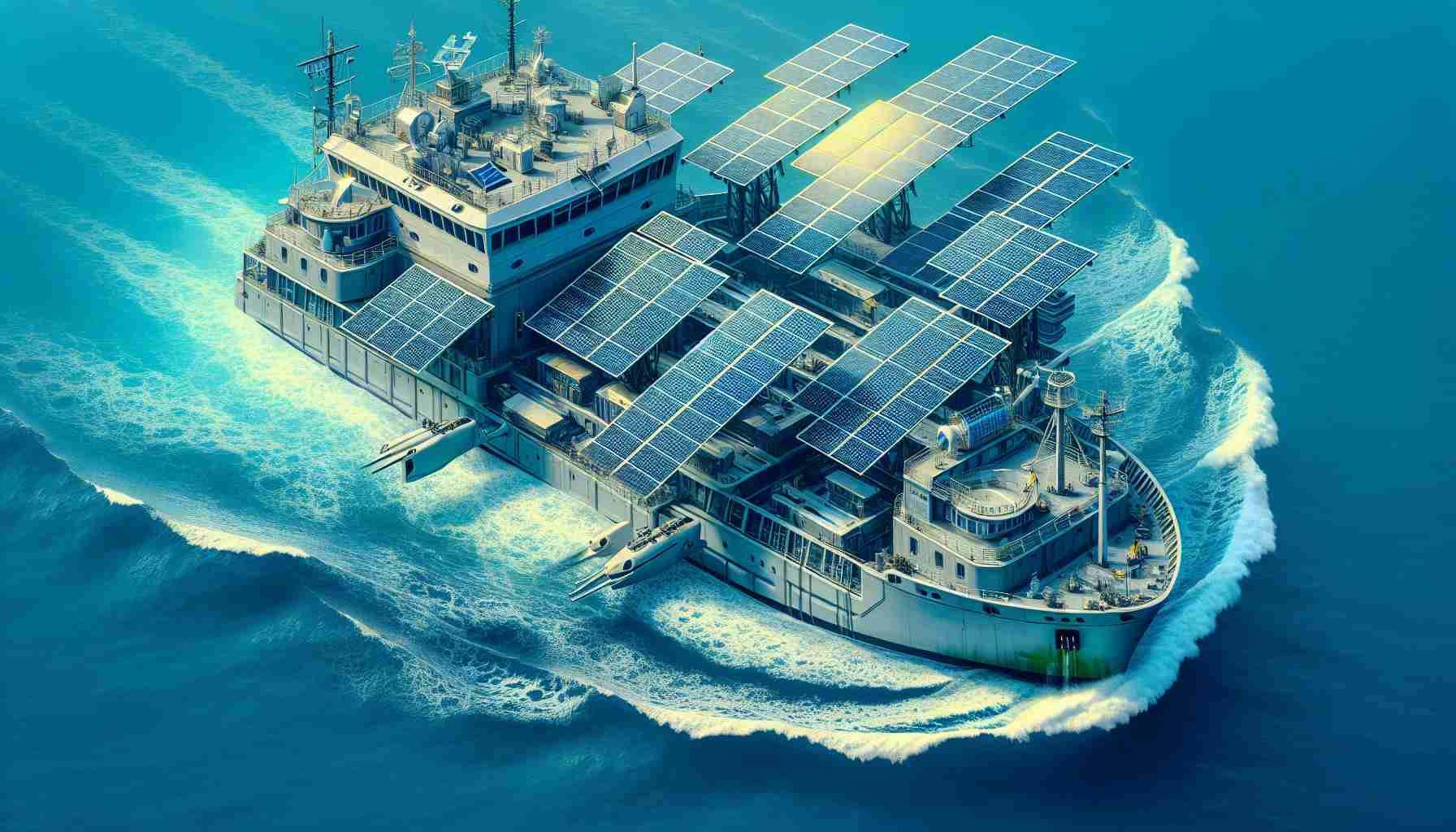Exciting advancements in oceanographic research are on the horizon. The Scripps Institution of Oceanography, part of UC San Diego, is set to lead the charge with a groundbreaking coastal class research vessel.
In a notable development, the institution is seeking proposals for a state-of-the-art, hydrogen-hybrid coastal class research vessel (CCRV), designed by Glosten. This innovative vessel will primarily operate on hydrogen, accounting for 75% of its energy use, and will incorporate diesel-electric generators for extended missions.
The American Bureau of Shipping (ABS) has already given the green light to the preliminary design of this 125-foot vessel, which is expected to replace the aging Robert Gordon Sproul, currently serving after 43 years. To support this initiative, California has allocated a substantial $35 million to UC San Diego for the vessel’s design and construction.
The CCRV will come equipped with a range of sophisticated technology, including acoustic Doppler current profilers, seafloor mapping systems, and tools for biological and geological sampling. Additionally, it will support crucial research on topics such as fisheries, harmful algal blooms, and the impacts of climate change on marine ecosystems.
With the capacity to accommodate up to 45 individuals for day trips, the new vessel will enhance research opportunities through initiatives like the UC Ship Funds Program. The concept for this hydrogen-hybrid system emerged from a collaborative study funded by the U.S. Department of Transportation’s Maritime Administration.
The Ocean’s Future: Innovation and Its Broader Implications
The shift towards sustainable oceanographic research, exemplified by the Scripps Institution of Oceanography’s new hydrogen-hybrid coastal class research vessel, signals a significant trend in both environmental responsibility and scientific exploration. As global attention pivots towards sustainability, this vessel’s design—predominantly reliant on hydrogen energy—underscores a growing commitment to cleaner maritime operations. The implications are profound: by prioritizing low-emission technologies, research institutions can not only reduce their carbon footprint but also set a precedent for the maritime industry at large.
Climate change remains a pressing concern for societies around the globe, and marine ecosystems are often the frontline indicators of its effects. As such, advanced research capabilities offered by the CCRV become critical in our collective effort to study and mitigate these impacts. The vessel’s technology will provide important data on fisheries and algal blooms, essential for developing sustainable practices that protect delicate ocean environments while supporting local economies.
Moreover, this initiative reflects a larger trend of public-private partnerships aimed at fostering innovation in greener technologies. As government funding of $35 million illustrates, investment in scientific research can yield dividends not just for academia but also for the economy at large. Supporting advancements in maritime technology aligns with governmental objectives to combat climate change, foster job creation in new energy sectors, and ultimately, sustain the health of our oceans for future generations.
Revolutionizing Marine Research: Scripps Oceanography’s Hydrogen-Hybrid Research Vessel
Exciting Innovations in Oceanographic Research
The Scripps Institution of Oceanography, part of the prestigious University of California, San Diego, is spearheading a significant advancement in marine research capabilities with its plans for a cutting-edge coastal class research vessel (CCRV). This initiative is not only set to replace an aging ship but will also play a pivotal role in promoting sustainable and efficient oceanographic research through its innovative hydrogen-hybrid technology.
Key Features and Specifications
The proposed 125-foot CCRV will utilize a hydrogen-hybrid power system designed by Glosten, where approximately 75% of its energy needs will be met through hydrogen. To ensure reliability during extended missions, it will also be equipped with diesel-electric generators. This forward-thinking design has received preliminary approval from the American Bureau of Shipping (ABS), reflecting its compliance with modern marine safety and sustainability standards.
The vessel will be outfitted with an array of advanced research technologies, including:
– Acoustic Doppler Current Profilers: For monitoring water currents.
– Seafloor Mapping Systems: To conduct detailed surveys of underwater terrains.
– Biological and Geological Sampling Tools: Essential for studying marine ecosystems.
These sophisticated instruments will enable researchers to focus on critical areas such as fisheries management, the effects of harmful algal blooms, and the broader impacts of climate change on ocean health.
Research Capacity and Opportunities
With a capacity to host up to 45 individuals for day trips, the new CCRV will enhance collaborative research initiatives. This vessel will specifically support programs like the UC Ship Funds Program, promoting educational and practical experiences for students and researchers alike.
Funding and Support
Backing for this ambitious project includes a significant investment of $35 million from the state of California toward the vessel’s design and construction. This funding underscores the importance of investing in sustainable maritime research infrastructure as our global climate situation evolves.
Pros and Cons of Hydrogen-Hybrid Vessels
# Pros:
– Sustainability: Reduces reliance on fossil fuels, minimizing environmental impact.
– Advanced Technology: Promotes cutting-edge research capabilities.
– Enhanced Research Capacity: Facilitates a broader scope for marine studies.
# Cons:
– Cost of Development: The initial investment in hydrogen technology may be high.
– Operational Challenges: Hydrogen infrastructure and storage may pose logistical challenges.
Impact on Marine Research
The introduction of the hydrogen-hybrid CCRV is expected to set new precedents in oceanographic research, aligning with global trends towards greener technology. It signifies a growing recognition of the need for innovative approaches to tackle the challenges facing our oceans today.
Looking Ahead
As the Scripps Institution leads this technological shift, we can anticipate further advancements in marine research vehicles that prioritize energy efficiency and sustainability. This pioneering effort positions Scripps at the forefront of oceanographic innovation, potentially influencing maritime research practices worldwide.
For further insights on marine research advancements, visit the Scripps Institution of Oceanography.


